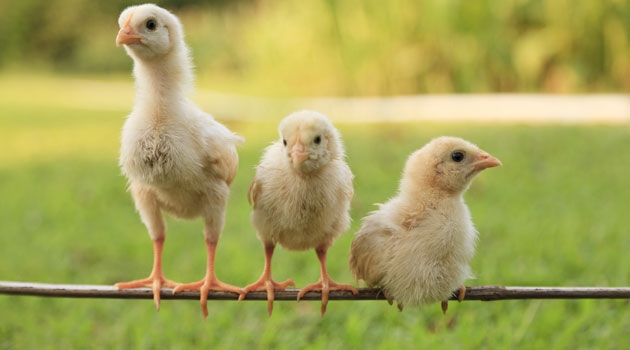Chronic stress causes genetic changes in chickens
How can stress in animals be measured? Scientists from Uppsala University and elsewhere have now found that what are known as epigenetic biomarkers could be used to detect long-term exposure to stress in commercially raised chickens. This may, in time, lead to improved conditions in animal rearing. The study has been published in the journal Frontiers in Genetics.
Subjected to chronic stress, animals show deterioration in their general state of health and a weakened immune system, which is unfortunate in terms of animal protection. For commercial animal production, it means that animal products are of a lower quality and a larger quantity of meat has to be discarded. These repercussions, in turn, adversely affect farmers’ finances and consumers’ food quality. Nonetheless, there are currently no reliable ways of measuring long-term stress in animals.
Researchers from Sweden and Brazil have now, in chicken studies, looked for signs of how chronic stress can affect the genes of red blood cells, causing “epigenetic changes”. In brief, this means that specific molecule types (“methyl groups”) attach themselves to different parts of the DNA strand (“methylation”), depending on how the animal has lived. This may exert long-term effects on gene expression. Genes can, for example, be turned on or off (activated or deactivated).
Divided into two groups
The chickens studied, males of the popular White Leghorn breed of laying birds, were divided into two groups. One group was raised in a normal commercial environment, housed with other chickens and with good access to food and water. In the other group, the birds were exposed to factors known to induce stress. They were periodically isolated from one another, with also limited access to food and water. The same experiment was performed in both Sweden and Brazil.
“We took blood samples from the chickens in both the control group and the stress group after the stress treatment ended. We analysed the methylation of red blood cells and compared methylation patterns in the two groups,” says Fábio Pértille of the University of São Paulo, the first author of the study.
Exposed to prolonged stress
What they then saw was that in the stressed birds, the way in which the methyl groups had bound to the DNA of the red blood cells was entirely different from how this occurred in the control chickens. Although the scientists were unable to see how long these changes persisted, they were nonetheless an indication that the chickens had been exposed to prolonged stress.
“It’s early days, but the results from this study are a step towards being able to identify specific epigenetic biomarkers that are evidence of the stress imposed on commercially raised animals in their living environment. It would be highly useful to have a diagnostic tool for tracking recurrent stress in production animals. And that could bring about, for example, improved health and protection for farmed animals; meat and dairy products of higher quality; and reduced use of antibiotics,” says Carlos Guerrero-Bosagna, a researcher in environmental toxicology at Uppsala University.
Åsa Malmberg
Publication
Fábio Pértille et al. (2020), Putative Epigenetic Biomarkers of Stress in Red Blood Cells of Chickens Reared Across Different Biomes, Frontiers in Genetics. DOI: 10.3389/fgene.2020.508809

